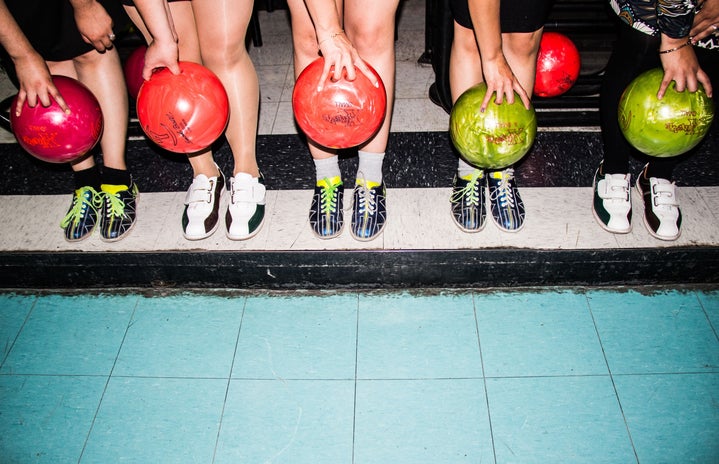Content warning: sexual violence
Over the last few months, many survivors have broken their silence about the sexual abuse and harassment they’ve endured. While the #MeToo movement has given so many individuals their voice, I couldn’t help but feel like I was still whispering.
Though I’ve shared my some experiences with sexual harassment in other Her Campus pieces, I was still afraid of sharing some of my other, more traumatizing, stories. I was afraid of being judged, being victim blamed and reliving that same pain (even if I still relive these experiences every day), but I’m choosing to share some of my other #MeToo stories in hopes that others will be inspired to continue to fight against sexual perpetrators.
While I could share a list of the dozens of times I’ve been sexually abused, that won’t help me or anyone who’s reading this article. I’d rather use these stories from survivors, along with my own survival stories, to illustrate the lessons that we’re forced to learn—and how we survivors are forever changed, regardless of how much time has passed.
Related: I’m Finally Breaking My Silence On The #MeToo Movement
1. How to be hyper-vigilant
As a child my mother adapted her own version of Memory for us to play as a family. Instead of trying to find the matches to the same cartoon apple or ice cream cone, my mother would tape photos of people on the card. But instead of using the same image for these individuals, she would adhere different photos of the same person, and I would have to find the matches.
I didn’t realize that this wasn’t the traditional way to play Memory until I was a bit older. When asked why we couldn’t play the “regular” Memory, my mother explained to me that as women “we need to have better memories and be aware of our surroundings, including the people around us.” (Granted, everyone needs to be hyper-vigilant to be able to notice someone following them or to be able to identify their abusers.)
My mother only vaguely talks about why she came up with this adaptation, but this game molded my childhood and my adulthood. While I still try to maintain my pseudo-photographic memory using my own version of my family’s game of Memory, I know that this unconventional game has helped me protect myself—even if I don’t always feel safe.
2. Fight to be taken seriously
Two years after I mastered the adapted version of Memory, my mother and I went to the mall in the city. It was the summer, so we were preparing for a new school year—new notebooks, new clothes and new lessons. Normal excursions that most families are able to complete without any imminent risk.
While shopping in a bookstore, my mother was groped by a random man. She immediately told an employee, who called security.
The mall security had escorted the man out of the store, so we could continue our shopping. Towards the end of our outing, we ventured to a Dillards, where I noticed that the same man who assaulted my mother was at the jewelry counter.
Though my mother and I quickly boarded the escalator to get away, he got on the escalator, immediately behind us. I don’t remember exactly what obscenities he called my mother, but I do remember him pushing me, a 7-year-old, down the top of the escalator.
I also recall the back of my skull hitting the grooves of every step on the way down (until another person caught me toward the bottom of the escalator).
While I don’t remember the hospital visits that followed or how many stitches I received, I can’t help but think that if security had removed that man from the mall, then maybe I wouldn’t have been physically assaulted. Sexual abusers are just that—abusers. They abuse their power in any way they can, yet security didn’t take his abuse seriously. Because of that, the situation escalated.
I still have a scar where my neck meets my skull. But I’m glad it’s still there, because it reminds me to continue fighting for myself and others. Ultimately, we should need to battle to have our claims taken seriously, especially when these sexual crimes can often also be physically violent and even deadly.
3. Sometimes friends don’t always have your best interests in mind
When I was a sophomore in college, I was raped. He was a friend of a friend, and despite my newfound voice I’m still afraid to type his name.
Although I lived in a secure dorm at the time and the building was locked during the evening, that night he had waited outside my residence for someone to leave or exit and presumably snuck in as the front entrance was closing or politely asked to be let in.
He found out where I lived from a mutual friend, and he waited at my door as I was in dorms’ kitchen, cleaning a coffee mug. The other details of how and what happened are unnecessary, and I don’t need to share every detail of my stories to validate what happened to me (after all, these are my stories to tell, and nobody can take that away from me).
Regardless, even the most docile classmates or coworkers can be dangerous. Nevertheless, we shouldn’t feel ashamed for reporting our friends or family for hurting us.
4. It’s okay to get help
Growing up seeing my mother and sister survive their own sexual assault and harassment, I noticed that they never talked about it in detail. They never mentioned it much in general, so I initially thought that I was weak for not being able to overcome my own sexual traumas—especially since they happened years ago.
I’ve finally grown strong enough to understand that it’s okay to need and want help. And seeking therapy or counseling doesn’t make you feeble, because being vulnerable doesn’t mean that you are somehow less than.
Even if you aren’t convinced they can help you with your situation, talking to a therapist can help prevent the residual emotions and trauma from your sexual assault from impacting other aspects of your life—like your courses, work and relationships.
Talking to a therapist, someone who is pretty much a stranger, can give you power in a powerless situation. I’m not ashamed anymore to admit to regularly see a therapist, but I am ashamed that we still need lessons like these to continue to survive.
It took me awhile to learn how to speak again, but I know that I still have the privilege to have my voice heard. Hopefully that privilege can help others learn to survive and cope with their own sexual assault and harassment.



